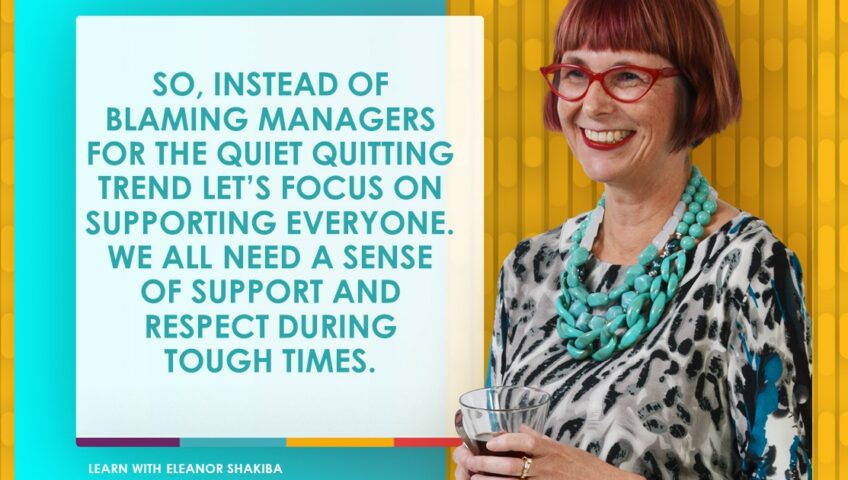Every day, we see another headline about Quiet Quitting: people resigning, retiring and changing careers in droves. Much of the conversation centers around managers being at fault for this trend, but this simply isn’t helpful. Really, it has more to do with post-pandemic weariness than anything else. This is a delayed reaction to three years of global turbulence, loss and chaos. I don’t think this is really ‘burnout’ in the true sense of the word. A far better label would be ‘exhaustion’. It’s a state caused by being stuck in a limbo zone between stress and success.
Sadly, while large numbers of employees are feeling this deep exhaustion, their managers aren’t too far behind. It’s easy to point fingers and assign blame during chaotic times, but this does nothing more than add to the mental overload already being felt by supervisors, managers and leaders. The truth is that people at all levels are realigning themselves after three years of stress. That’s one hundred percent predictable and normal.
So, instead of blaming managers for the Quiet Quitting trend let’s focus on supporting everyone. We all need a sense of support and respect during tough times. Managers also need to know that the invisible ‘toxic handling’ burden they carry is recognised. After all, people leaders have been carrying huge responsibility for enabling both businesses and teams to keep going over the past three years. Now we need to help them to reset, regain their energy and reconnect with their purpose and vision. Here are three practical ways to do this.
Free e-book and video tips.Get your copy today!
|
|
Express thanks
Recognise what managers have been through during the pandemic and thank them for their efforts. Their resilience, hard work and dedication shouldn’t go unnoticed. Point out that they’ve supported the business and team through unprecedented challenges.
Stop sending them to resilience training!
The time for resilience training is over. Focus your development programs on helping managers to reflect and renew. Create a dynamic, positive space for them to reconnect with their own vision and purpose – as well as the organisation’s vision.
Offer flexible working
Flexibility helps everyone to reset and recover from burnout. Allow managers the option of reduced hours, secondments, jobsharing or even career breaks if they need them. A change is better than a resignation, after all.
The key takeway here is that instead of blaming managers for the Quiet Quitting trend, we should focus on supporting everyone. We all need a sense of support and respect during tough times. And managers should be included in our efforts to make the future brighter.
This article was created by Eleanor Shakiba
Eleanor is a leadership trainer and success coach. Her mission is inspiring talented people to become leaders who make a difference. Since discovering her passion for training and development, Eleanor has trained more than 60,000 people. She delivers face-to-face workshops for corporates, online masterclasses for leaders and Positive Psychology retreats for trainers, HR practitioners and leaders.

